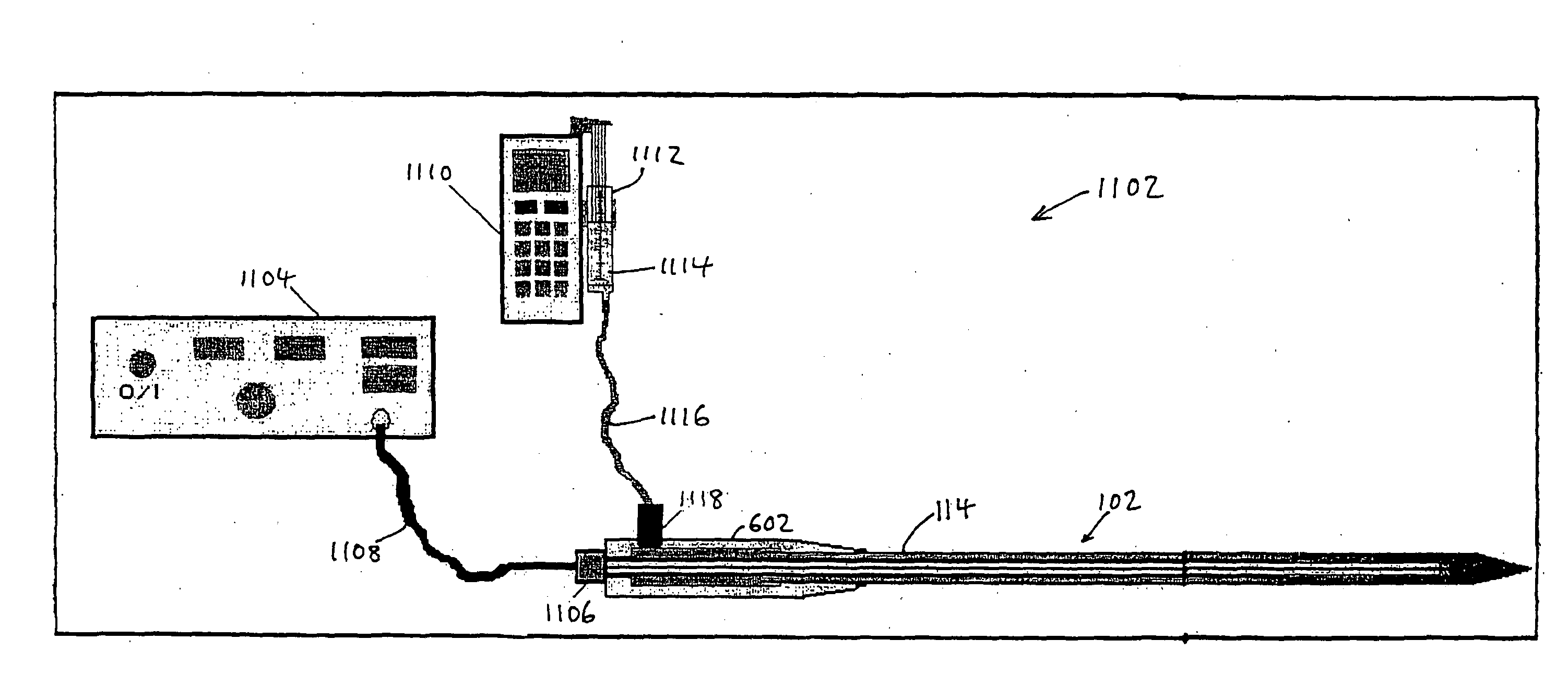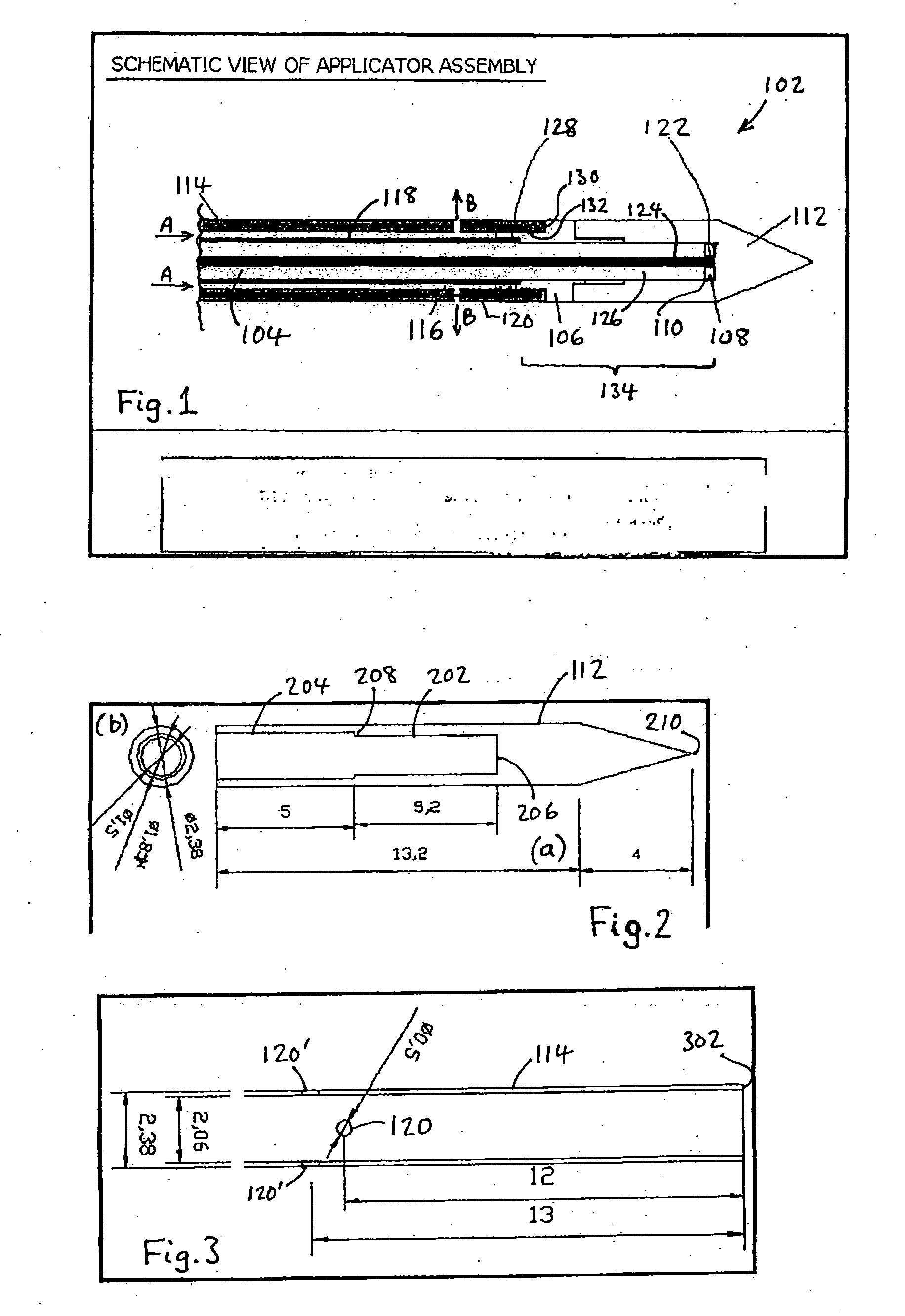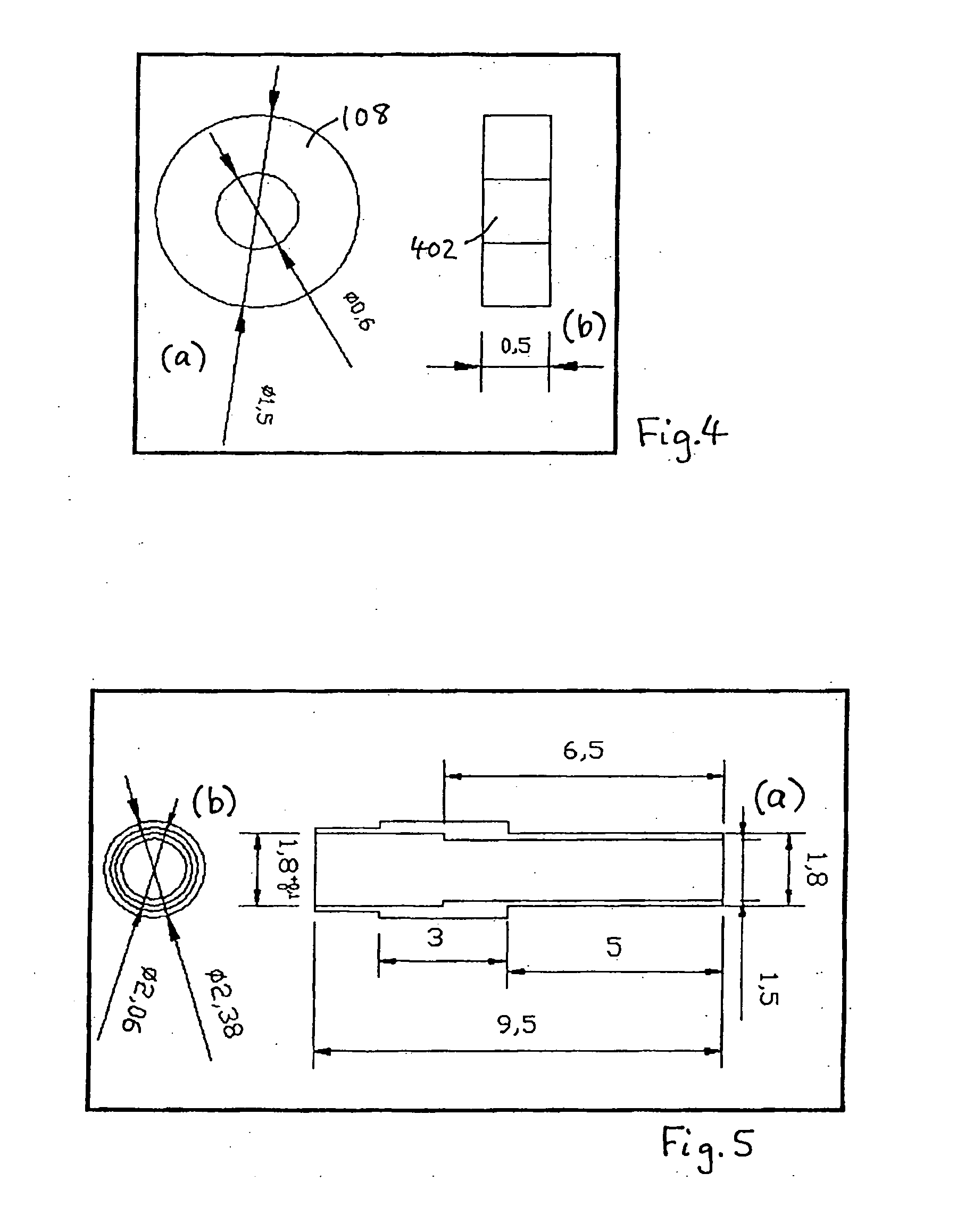Radiation Applicator and Method of Radiating Tissue
a tissue and radiation applicator technology, applied in the field of medical technology, can solve the problems of not having the heightened physical rigidity of known radiation applicator systems, not optimally mechanically configured for insertion into human skin, and difficult operation of liver cancer, so as to facilitate tissue insertion and provide strength and stiffness to the applicator.
- Summary
- Abstract
- Description
- Claims
- Application Information
AI Technical Summary
Benefits of technology
Problems solved by technology
Method used
Image
Examples
Embodiment Construction
[0036]In the following description, like references are used to denote like elements, and where dimensions are given, they are in millimeters (mm). Further, it will be appreciated by persons skilled in the art that the electronic systems employed, in accordance with the present invention, to generate, deliver and control the application of radiation to parts of the human body may be as described in the art heretofore. In particular, such systems as are described in commonly owned published international patent applications W095 / 04385, W099 / 56642 and WOOO / 49957 may be employed (except with the modifications described hereinafter). Full details of these systems have been omitted from the following for the sake of brevity.
[0037]FIG. 1 is a schematic, partial cross-sectional view of a radiation applicator in accordance with one embodiment of the invention. The radiation applicator, generally designated 102, includes a distal end portion of a coaxial cable 104 that is used to couple to a...
PUM
 Login to View More
Login to View More Abstract
Description
Claims
Application Information
 Login to View More
Login to View More - R&D
- Intellectual Property
- Life Sciences
- Materials
- Tech Scout
- Unparalleled Data Quality
- Higher Quality Content
- 60% Fewer Hallucinations
Browse by: Latest US Patents, China's latest patents, Technical Efficacy Thesaurus, Application Domain, Technology Topic, Popular Technical Reports.
© 2025 PatSnap. All rights reserved.Legal|Privacy policy|Modern Slavery Act Transparency Statement|Sitemap|About US| Contact US: help@patsnap.com



